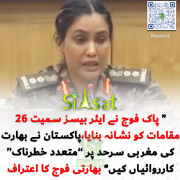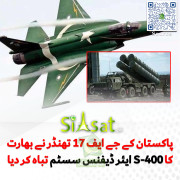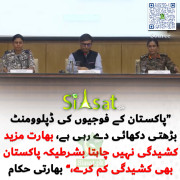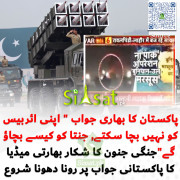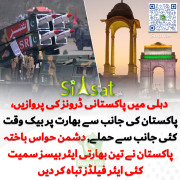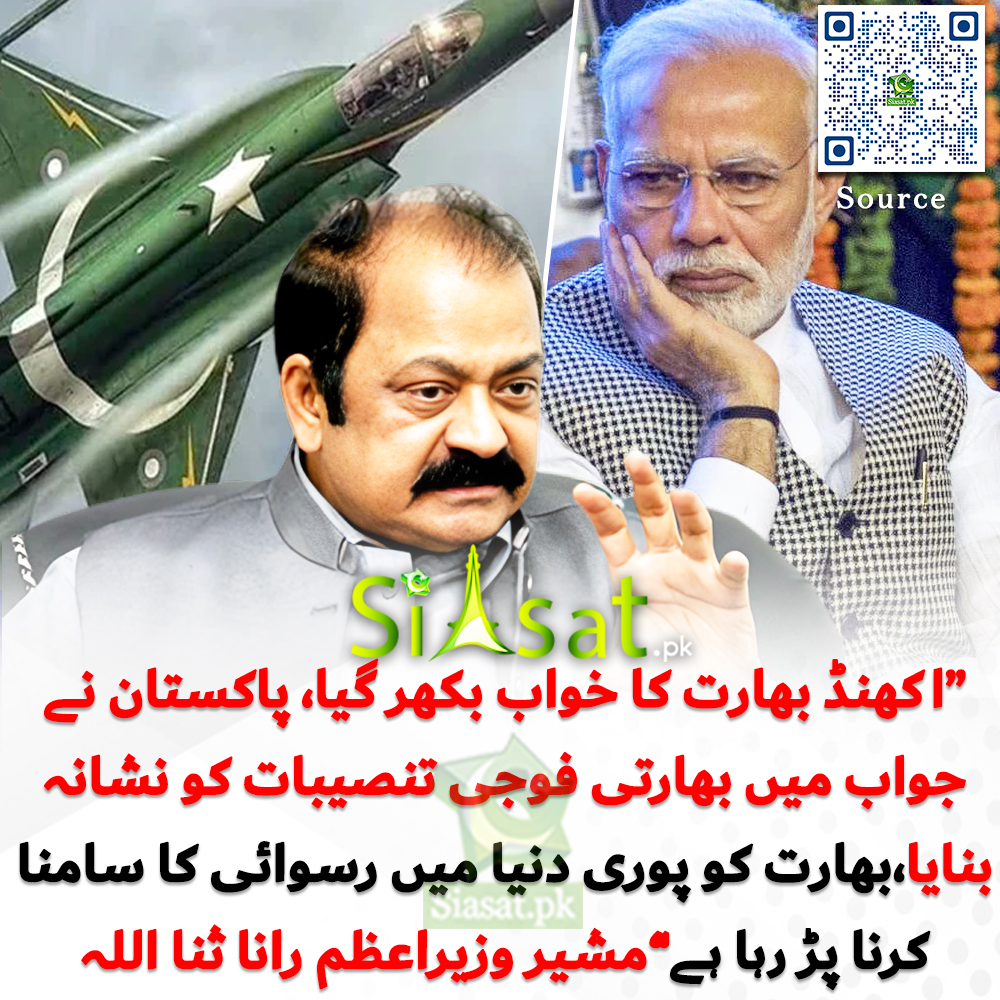A
arshad_lahore
Guest
Mal-Icky Security
The Pakistan report card
Thursday, June 18, 2009
Fasi Zaka
Mal-Icky heads security in a troubled nation. Gill-Lonely is the isolated premier.
Mal-Icky: I have solved the problem of the lethal drones.
Gill-Lonely: Good, no more needless deaths.
Mal-Icky: Yes, both Sher Afghan Niazi and Wasi Zafar have promised never to speak on television again.
Gill-Lonely: What on earth have you done! I was speaking of the American drones. What incompetence!
Mal-Icky: Sticks and stones may break my bones but names will never hurt me. At least what you just called me is not as bad as the name they would shout out at me in England.
Gill-Lonely: What was that?
Mal-Icky: Waiter!
Gill-Lonely: What were you doing working in a restaurant?
Mal-Icky: I was gathering intelligence.
Gill-Lonely: What did you learn?
Mal-Icky: That pakoras don't cook well in canola oil.
Gill-Lonely: Why did you go into exile, was it a matter of principle?
Mal-Icky: Yes, the principles of NAB.
Gill-Lonely: So what are you doing about Pakistan's most dangerous enemy?
Mal-Icky: PML-N?
Gill-Lonely: No! No! No! The Taliban!
Mal-Icky: Oh them, yes I am doing everything right now to defeat them.
Gill-Lonely: OK. So who is battling the Taliban?
Mal-Icky: The army.
Gill-Lonely: And who is fighting the expansion of the Taliban into new areas?
Mal-Icky: The locals.
Gill-Lonely: Where do we get our intelligence about the Taliban from?
Mal-Icky: The Americans.
Gill-Lonely: And pray tell what is it that you can do if everyone else but you are fighting them?
Mal-Icky: I can make you a nice pakora. Wait! Wait, stay still! I see a foreign hand in this room!
Gill-Lonely: Don't worry about that. It's just the president pulling his puppeteer strings on me.
Mal-Icky: Sir, I don't like the tone of this conversation, it seems you are suggesting I have done nothing.
Gill-Lonely: Well, what have you done?
Mal-Icky: I have provided jobs to the poor IDPs.
Gill-Lonely: Nonsense. Give me one example.
Mal-Icky: Sir, I have reinstated all of our displaced illegal appointments to the IB under our previous tenure removed by Nawaz Sharif.
Gill-Lonely: Well done! So what is your long-term policy?
Mal-Icky: Strategic depth.
Gill-Lonely: Explain.
Mal-Icky: I want us to build huge underground bunkers to hide from the Taliban.
Gill-Lonely: We have captured all these terrorists, why aren't you releasing any sensitive information to the public?
Mal-Icky: But I already have, Shoaib Akhtar has genital warts.
Gill-Lonely: Listen, do you have any special qualifications for this job?
Mal-Icky: Yes, in class two I came second in the hundred-metre race.
Gill-Lonely: How on earth is that helpful?
Mal-Icky: It's how I escaped justice last time around.
Gill-Lonely: And now?
Mal-Icky: It's how I escape the anger of the people.
Gill-Lonely: You don't take this security business very seriously.
Mal-Icky: I do, I have 64 guards at my house.
Gill-Lonely: But what about the people of this country?
Mal-Icky: For them I have the most powerful force in the country.
Gill-Lonely: Which is?
Mal-Icky: Allah.
And so they decide not to eat more pakoras, because they will be hard to find in Dubai.
The writer is a Rhodes Scholar and former academic.
The Pakistan report card
Thursday, June 18, 2009
Fasi Zaka
Mal-Icky heads security in a troubled nation. Gill-Lonely is the isolated premier.
Mal-Icky: I have solved the problem of the lethal drones.
Gill-Lonely: Good, no more needless deaths.
Mal-Icky: Yes, both Sher Afghan Niazi and Wasi Zafar have promised never to speak on television again.
Gill-Lonely: What on earth have you done! I was speaking of the American drones. What incompetence!
Mal-Icky: Sticks and stones may break my bones but names will never hurt me. At least what you just called me is not as bad as the name they would shout out at me in England.
Gill-Lonely: What was that?
Mal-Icky: Waiter!
Gill-Lonely: What were you doing working in a restaurant?
Mal-Icky: I was gathering intelligence.
Gill-Lonely: What did you learn?
Mal-Icky: That pakoras don't cook well in canola oil.
Gill-Lonely: Why did you go into exile, was it a matter of principle?
Mal-Icky: Yes, the principles of NAB.
Gill-Lonely: So what are you doing about Pakistan's most dangerous enemy?
Mal-Icky: PML-N?
Gill-Lonely: No! No! No! The Taliban!
Mal-Icky: Oh them, yes I am doing everything right now to defeat them.
Gill-Lonely: OK. So who is battling the Taliban?
Mal-Icky: The army.
Gill-Lonely: And who is fighting the expansion of the Taliban into new areas?
Mal-Icky: The locals.
Gill-Lonely: Where do we get our intelligence about the Taliban from?
Mal-Icky: The Americans.
Gill-Lonely: And pray tell what is it that you can do if everyone else but you are fighting them?
Mal-Icky: I can make you a nice pakora. Wait! Wait, stay still! I see a foreign hand in this room!
Gill-Lonely: Don't worry about that. It's just the president pulling his puppeteer strings on me.
Mal-Icky: Sir, I don't like the tone of this conversation, it seems you are suggesting I have done nothing.
Gill-Lonely: Well, what have you done?
Mal-Icky: I have provided jobs to the poor IDPs.
Gill-Lonely: Nonsense. Give me one example.
Mal-Icky: Sir, I have reinstated all of our displaced illegal appointments to the IB under our previous tenure removed by Nawaz Sharif.
Gill-Lonely: Well done! So what is your long-term policy?
Mal-Icky: Strategic depth.
Gill-Lonely: Explain.
Mal-Icky: I want us to build huge underground bunkers to hide from the Taliban.
Gill-Lonely: We have captured all these terrorists, why aren't you releasing any sensitive information to the public?
Mal-Icky: But I already have, Shoaib Akhtar has genital warts.
Gill-Lonely: Listen, do you have any special qualifications for this job?
Mal-Icky: Yes, in class two I came second in the hundred-metre race.
Gill-Lonely: How on earth is that helpful?
Mal-Icky: It's how I escaped justice last time around.
Gill-Lonely: And now?
Mal-Icky: It's how I escape the anger of the people.
Gill-Lonely: You don't take this security business very seriously.
Mal-Icky: I do, I have 64 guards at my house.
Gill-Lonely: But what about the people of this country?
Mal-Icky: For them I have the most powerful force in the country.
Gill-Lonely: Which is?
Mal-Icky: Allah.
And so they decide not to eat more pakoras, because they will be hard to find in Dubai.
The writer is a Rhodes Scholar and former academic.

